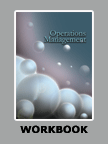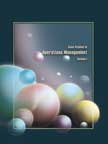Taiichi OHNO and Toyota Production System




|
|
ICMR HOME | Case Studies Collection
Case Details:
Case Code : OPER043
Case Length : 19 Pages
Period : 1998-2004
Organization : Toyota
Pub Date : 2005
Teaching Note : Available
Countries : Japan
Industry : Automobile (Two Wheelers)
To download Taiichi OHNO and Toyota Production System case study
(Case Code: OPER043) click on the button below, and select the case from the list of available cases:

Price:
For delivery in electronic format: Rs. 500;
For delivery through courier (within India): Rs. 500 + Rs. 25 for Shipping & Handling Charges
» Operations Case Studies
» Case Studies Collection
» ICMR HOME
» View Detailed Pricing Info
» How To Order This Case
» Business Case Studies
» Case Studies by Area
» Case Studies by Industry
» Case Studies by Company
Please note:
This case study was compiled from published sources, and is intended to be used as a basis for class discussion. It is not intended to illustrate either effective or ineffective handling of a management situation. Nor is it a primary information source.
|
|
<< Previous
Excerpts
Toyota
|
Toyota's history goes back to 1897, when Sakichi Toyoda (Sakichi) diversified
into the textile machinery business from the traditional family business of
carpentry. He invented a power loom in 1902 and founded the parent organization
of Toyota, the Toyoda Group, in the same year. In 1926, Sakichi invented an
automatic loom that stopped operating when a thread broke.
This prevented the
manufacture of imperfect cloth. (Calling attention to problems and rectifying
them at the earliest later became an important part of the TPS). The same year,
Sakichi formed the Toyoda Automatic Loom Works (TALW) to manufacture automatic
looms...
|
|
The Toyota Production System
Although the TPS was not the handiwork of Ohno alone, as it included
concepts developed by Sakichi, Kiichiro and Eiji, it was Ohno who
streamlined the concepts and developed them into a formal system. He was
also responsible for training a number of Toyota's engineers in how to use
and implement the system...
|
|
Benefits and Challenges
Analysts said that the TPS conferred a great amount of flexibility and
productivity-enhancing capabilities on Toyota. By the early 2000s, Toyota
had the capability to manufacture a car, from raw material to final
assembly, in five days.
This gave the company a considerable advantage over
competitors, many of whom took nearly 30 days for the same process. Analysts
said that the flexibility provided by the TPS allowed Toyota to make the
best use of its resources for greater productivity... |
The System of the Future
The Machine that Changed the World predicted that mass production as a strategy
would be replaced by the TPS in the 21st century. "We believe lean production (TPS)
will supplant both mass production and the remaining outposts of craft
production in all areas of industrial endeavor to become the standard global
production system of the twenty-first century," asserted the writers...
Exhibits
Exhibit I: Income Statement
Exhibit II: Comparative Revenues and Earnings of Automobile Majors
Exhibit III: Lean Manufacturing
Exhibit IV: Ohno's Seven Wastes
Exhibit V: Pull System
Exhibit VI: Ohno's Kanban Formula
Exhibit VII: Jidoka System
|
|



